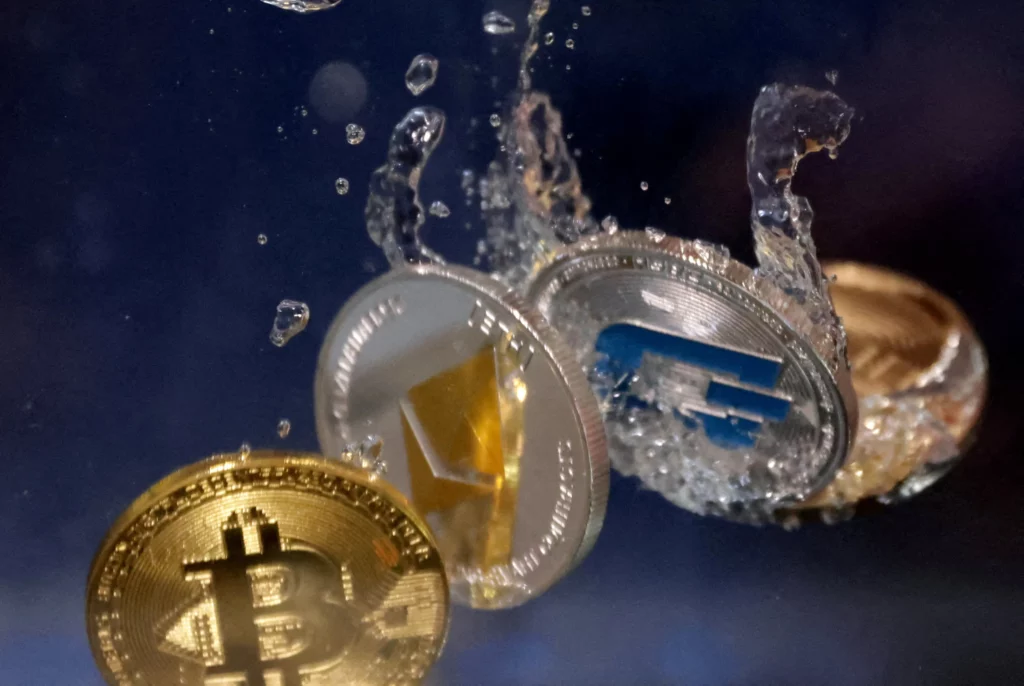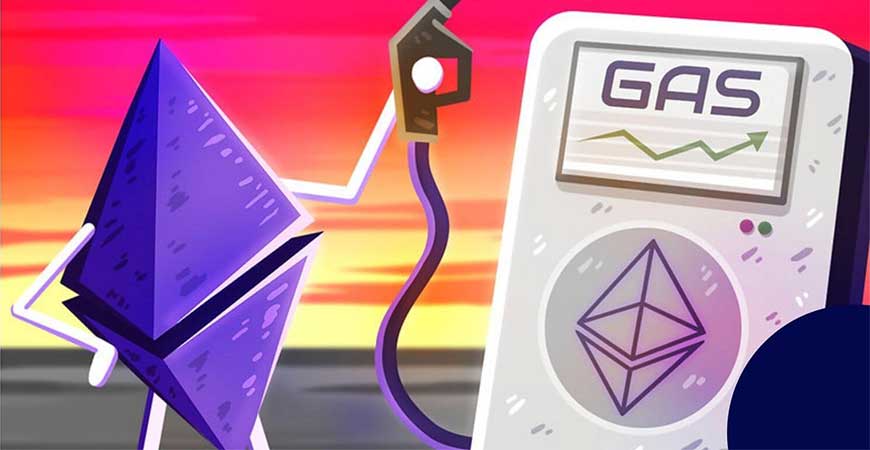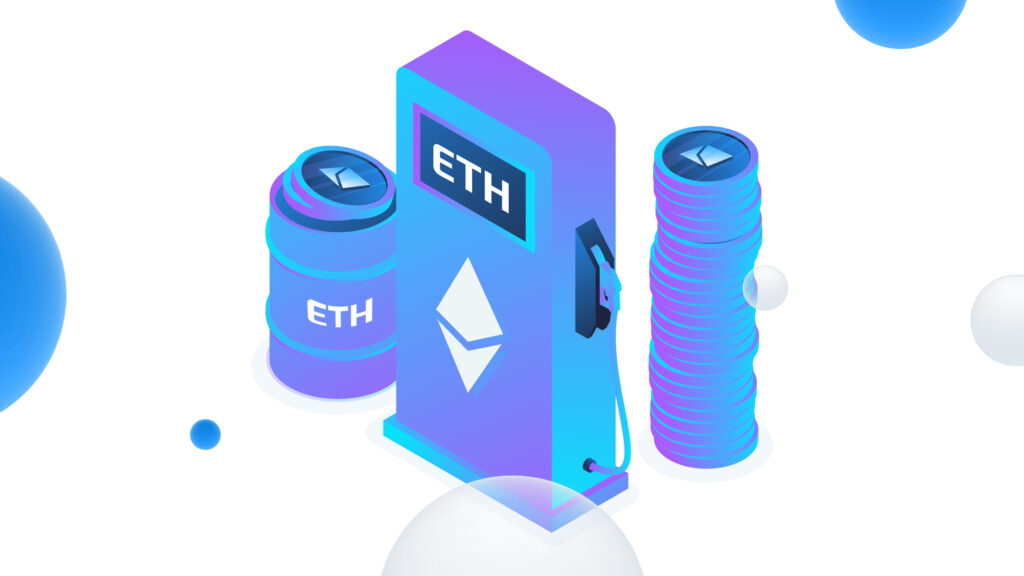What are Ethereum Gas Fees Singapore ?

In the fast-paced world of cryptocurrency, Ethereum has emerged as one of the leading platforms for decentralized applications. As more people are entering the Ethereum ecosystem in Singapore, understanding the concept of gas fees becomes crucial. Gas fees are essentially the transaction fees paid to miners to perform computations or store data on the Ethereum network. With Ethereum gas fees in Singapore becoming a hot topic, it’s essential to grasp their impact on transactions, especially for those looking to minimize costs.
Navigating the world of Ethereum gas fees can be daunting, but fear not! In this article, we will delve into the intricacies of gas fees, provide tips on optimizing transactions, and explore potential solutions to mitigate the rising costs. Whether you’re a novice Ethereum user or an experienced investor, understanding how gas fees work in the Singapore context is essential for a seamless experience on the Ethereum network.
So, get ready to make informed decisions about your Ethereum transactions in Singapore. Let’s dive in and unravel the mysteries of Ethereum gas fees together.

Understanding the concept of gas in Ethereum
Gas is a fundamental concept in the Ethereum ecosystem. It represents the computational work required to execute a transaction or run a smart contract on the Ethereum network. Each operation within a transaction consumes a certain amount of gas, and the sender of the transaction must pay for this gas in the form of gas fees. Gas fees are measured in a unit called “gwei,” which is a fraction of an Ethereum token.
To understand gas fees better, it’s essential to know the factors that influence them.
Factors that affect Ethereum Gas fees
Gas fees are not fixed and can vary depending on several factors. The primary factors that affect Ethereum gas fees are:
- Network Congestion: When the Ethereum network experiences high demand, such as during periods of heavy trading or when popular decentralized applications (DApps) are being used, gas fees tend to rise. This is because miners prioritize transactions with higher gas fees, leading to increased competition and higher fees.
- Gas Price: Gas prices are determined by market forces and fluctuate based on supply and demand. Gas prices are denominated in gwei, and the higher the gas price, the faster the transaction will be processed. Users can choose to set a higher gas price to incentivize miners to process their transactions faster.
- Gas Limit: Gas limit refers to the maximum amount of gas that can be used for a transaction or smart contract execution. It represents the upper limit on the computational work that can be performed. If a transaction or smart contract execution exceeds the gas limit, it will fail, and the gas fees will still be charged.
Now that we understand the factors that influence gas fees let’s explore the gas fee structure specific to Singapore.
Gas fee structure
In Singapore, gas fees are typically denominated in Singapore dollars (SGD) rather than gwei. Gas fees are determined by the gas price and the amount of gas consumed by a transaction. The gas price is usually set in gwei, and the gas consumed is calculated based on the complexity of the transaction or smart contract execution.
Gas fees in Singapore are influenced by the local demand for Ethereum transactions and the prevailing gas prices on global cryptocurrency exchanges. As Singapore is a major hub for cryptocurrency trading and blockchain innovation, gas fees can be higher compared to other countries with less Ethereum activity. Ethereum users in Singapore need to stay updated on the current gas fee structure to make informed decisions.
Comparison of Gas Fees in Singapore with Other Countries
Gas fees can vary significantly from one country to another due to differences in local demand, network congestion, and market conditions. While Singapore may have higher gas fees compared to some countries, it’s important to consider the overall Ethereum ecosystem in each region.
For example, countries with a high concentration of cryptocurrency traders and developers, such as the United States, China, and South Korea, may also experience high gas fees. On the other hand, countries with less Ethereum activity may have lower gas fees due to lower demand and competition among miners.
When comparing gas fees in Singapore with other countries, it’s crucial to consider the local context and the benefits that come with being part of a vibrant Ethereum community.
Tips to Minimize Ethereum Gas Fees.

While gas fees are an inherent part of the Ethereum network, there are several strategies you can employ to minimize the impact on your transactions in Singapore. Here are some tips to consider:
- Gas Price Optimization: To ensure your transactions are processed efficiently, it’s important to set an appropriate gas price. Consider using Ethereum gas fee calculators to estimate the optimal gas price based on the current network conditions. This will help you strike a balance between transaction speed and cost.
- Gas Limit Management: Carefully analyze the gas limit required for your transactions or smart contract executions. Setting an unnecessarily high gas limit can lead to higher fees. Optimize your code and use efficient smart contract design patterns to reduce gas consumption.
- Timing your Transactions: Gas fees tend to be lower during periods of low network congestion. Consider timing your transactions during off-peak hours to take advantage of lower gas prices.
- Batch Transactions: If you have multiple transactions to execute, consider batching them into a single transaction. By bundling multiple transactions together, you can reduce the overall gas fees compared to executing them individually.
By following these tips, you can make your Ethereum transactions in Singapore more cost-effective and efficient.
Tools and Platforms to Monitor and Calculate Ethereum Gas Fees

To stay updated on gas fees and make informed decisions, there are several tools and platforms you can use. These tools provide real-time data on gas prices, network congestion, and transaction speeds. Some popular tools and platforms include:
- Etherscan: Etherscan is a widely used blockchain explorer that provides detailed information about Ethereum transactions, including gas prices, gas limits, and transaction confirmations. It also offers a gas tracker feature that helps users monitor gas prices over time.
- GasNow: GasNow is a gas price oracle that provides real-time gas price data. It offers a simple API that developers can integrate into their applications to fetch the latest gas price information.
- EthGasStation: EthGasStation is another popular platform that provides gas price recommendations based on historical data and network conditions. It offers a user-friendly interface and comprehensive gas fee statistics.
By leveraging these tools and platforms, you can stay informed about the current gas fee landscape in Singapore and optimize your transactions accordingly.
Strategies to Optimize Transactions and Reduce Gas Fees

In addition to the tips mentioned earlier, there are several strategies you can employ to optimize your transactions and reduce gas fees in Singapore:
- Smart Contract Optimization: Review your smart contracts and identify areas that can be optimized for gas efficiency. This includes removing unnecessary operations, simplifying complex logic, and leveraging existing libraries and frameworks.
- Gas Tokenization: Gas tokenization is a technique where users pre-purchase gas and store it in a token form. This allows users to lock in gas prices when they are low and use the stored gas when fees are high. Gas tokenization can help mitigate the impact of volatile gas prices.
- Layer 2 Solutions: Layer 2 solutions, such as state channels and sidechains, aim to improve scalability and reduce gas fees by performing transactions off-chain. By utilizing Layer 2 solutions, users can benefit from faster and cheaper transactions while still enjoying the security of the Ethereum mainnet.
- Gas Fee Marketplaces: Gas fee marketplaces connect users with miners directly, allowing them to negotiate gas prices and secure better deals. These marketplaces leverage the decentralized nature of blockchain to create a more transparent and competitive environment for gas fees.
By implementing these strategies, you can optimize your transactions and reduce gas fees, making your Ethereum experience in Singapore more cost-effective and efficient.
Future Developments and Potential Solutions For High Gas Fees
The Ethereum community is actively working on several initiatives to address the issue of high gas fees. These developments aim to improve scalability, reduce congestion, and ultimately lower gas fees. Some potential solutions include:
- Ethereum 2.0: Ethereum 2.0, also known as ETH2 or Serenity, is a major upgrade to the Ethereum network that aims to improve scalability and reduce gas fees. The upgrade introduces a new consensus mechanism called Proof of Stake (PoS) and shard chains, which allow for parallel transaction processing.
- Layer 2 solutions: As mentioned earlier, Layer 2 solutions offer promising scalability improvements and gas fee reductions. Projects like Optimism, Arbitrum, and zkSync are actively working on bringing Layer 2 solutions to the Ethereum ecosystem.
- EIP-1559: EIP-1559 is a proposed Ethereum Improvement Proposal that aims to change the way gas fees are calculated. It introduces a base fee that is burned instead of being paid to miners, resulting in a more predictable and potentially lower fee structure.
These developments, along with ongoing research and innovation, hold the promise of reducing gas fees and improving the overall Ethereum user experience in Singapore and beyond.
Conclusion: Navigating Ethereum gas fees.
As more people join the Ethereum ecosystem in Singapore, understanding and navigating gas fees becomes crucial. Gas fees are an integral part of the Ethereum network and can impact the cost and speed of transactions. By understanding the factors that affect gas fees, optimizing transactions, and leveraging tools and platforms, users can minimize the impact of gas fees on their Ethereum experience.
While gas fees in Singapore may be higher compared to some countries, being part of a vibrant Ethereum community offers unique opportunities and benefits. By staying informed about the current gas fee structure and future developments, users can make informed decisions and contribute to the growth and innovation in the Ethereum ecosystem.
So, whether you’re a novice Ethereum user or an experienced investor, take control of your Ethereum transactions in Singapore and embrace the exciting world of decentralized applications. Together, let’s navigate the complexities of Ethereum gas fees and unlock the full potential of this revolutionary technology.
Happy transacting!